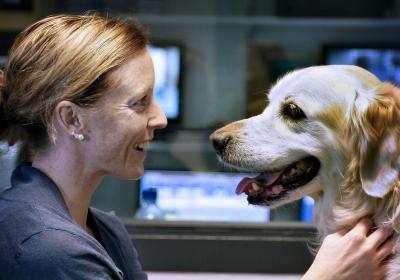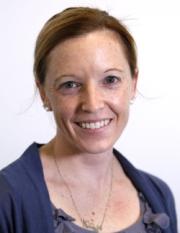New Veterinary Cancer Centre head
A new head of clinical oncology has been appointed at one of the world’s leading veterinary cancer centres.

Jessica Lawrence will lead the clinical team at the cancer centre at the University of Edinburgh’s Royal (Dick) School for Veterinary Studies.
The £3 million Riddell Swan Cancer Care Centre, which was opened three years ago, provides cutting-edge treatment for animals and is the translational arm of the school’s strong cancer research portfolio.
Dr Lawrence, who has completed training in both radiation and medical oncology, joins the School from the University of Georgia, where she was Assistant Professor of Small Animal Oncology.
If you look at human medicine, radiation therapy plays a massive role as both a stand-alone treatment or in combination with other therapy.Unlike chemotherapy, radiation is targeted at specific parts of the body so can avoid damaging healthy tissue. Our main aim, when providing treatment, is to ensure animals have the best quality of life possible. Radiotherapy, even in the sense of palliative care, also has a huge role to play in the management of chronic disease.

Around one in three dogs and cats will develop cancer, and the disease is the leading cause of death in household pets.
Although cancer rates are increasing because animals are living longer, as with humans, new treatments have led to better survival rates and improved quality-of-life measures.
The cancer centre’s equipment includes a linear accelerator, similar to those used in human medicine, which can provide radiotherapy treatment to target diseased tissue. Its advanced software enables vets to draw up tailor-made treatment plans for individual animals.
One of Dr Lawrence’s main areas of research interests is looking at how drugs, combined with radiotherapy, can improve response rates to treatment, and optimise radiation delivery to ensure normal tissue is spared.
The oncology work here is world-class and I want to build on that, such as looking at continuing and expanding resident training programmes.There is also a great sense of collaboration in Edinburgh, which includes working with clinicians in human medicine. Comparative medicine means we can apply what we know about effective therapies in human medicine to treatments for animals and vice-versa.
Dr Lawrence will assume the role of Head of Veterinary Clinical Oncology to support Professor David Argyle, who was appointed Dean of the Royal (Dick) School of Veterinary Studies last year.
We are delighted to have Jessica on board. She has a vast wealth of experience and will be able to further strengthen the work of the cancer centre along with research looking at how treatments and outcomes can be improved. Her expertise will also be of immense benefit for veterinary students interested in oncology.”
Last year a new cancer ward for dogs was also opened at the vet school’s Hospital for Small Animals, with support from the Kennel Club Charitable Trust.


